Climate Fiction So Earth-Shattering You’ll Never Forget to Recycle Again
These must-read dystopian books imagine a future where the worst has already happened.
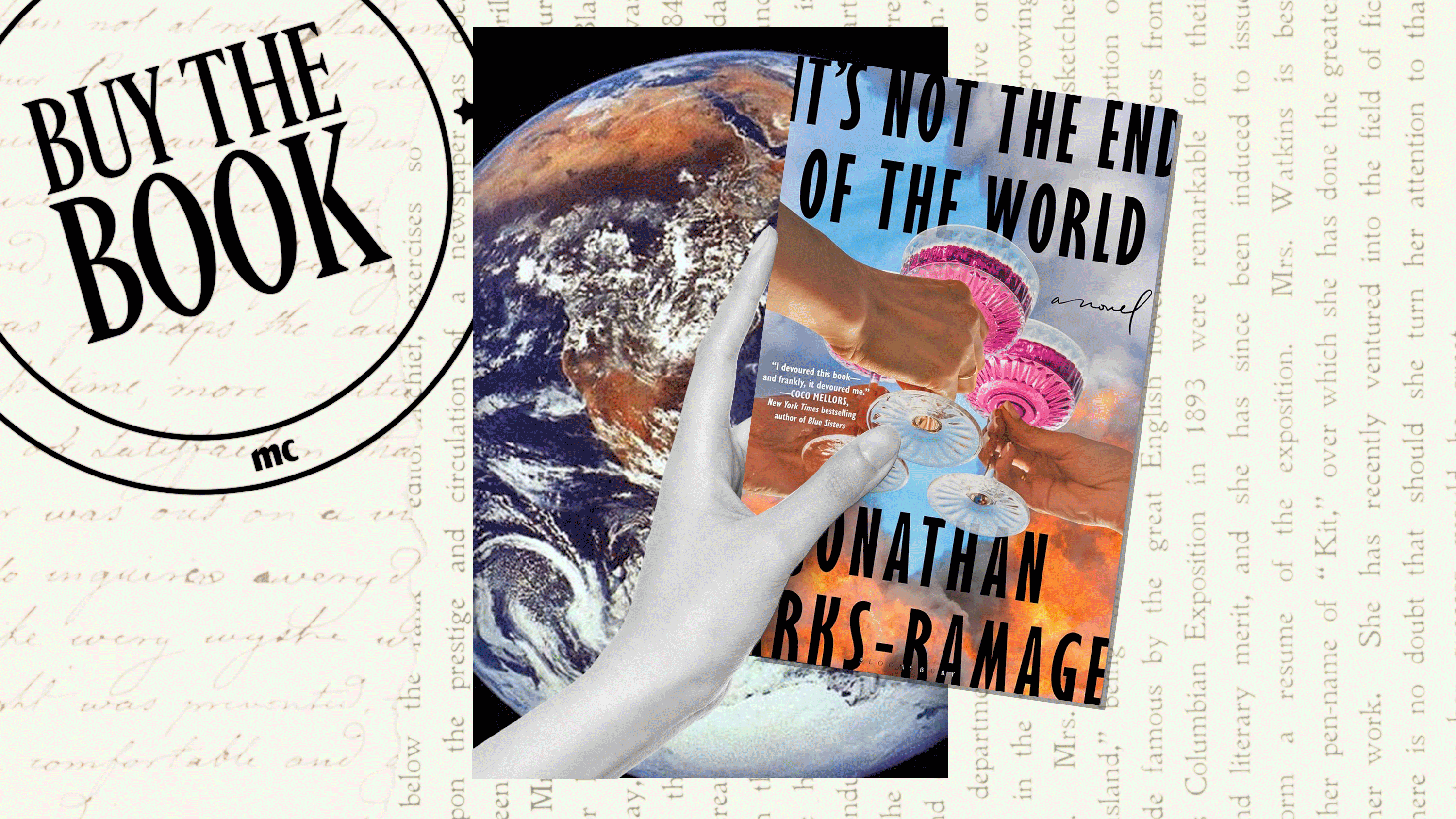

When you're looking to get lost in a book, sometimes you need your reading material to match your mood. With Marie Claire's series "Buy the Book," we do the heavy lifting for you. We're offering curated, highly specific recommendations for whatever you're looking for—whether you're in your feels or hooked on a subgenre trending on #BookTok.
Natural disasters seem to strike almost daily, sometimes making truth feel stranger than fiction. Born out of these tragedies—and the political discourse they ignite—a sub-genre of science fiction novels has emerged: climate fiction, or cli-fi books. These novels often present speculative fiction and dystopian tropes, but with a bent toward telling stories about natural destruction that's both real and imagined.
In cli-fi novels, the worst has happened: The big storm hit, the floodwater festered, and the air has gone toxic. While terrifying, these ingredients can make for great fiction, furnishing a hotbed of opportunity to examine human nature, relationships, and a character’s resilience.
From titles published ahead of their time to new releases about protecting the world’s seed bank, these novels are increasingly prescient while providing unexpected comfort and hope. Below, find the 11 best cli-fi novels that will remind you to enjoy Mother Earth before it's too late.
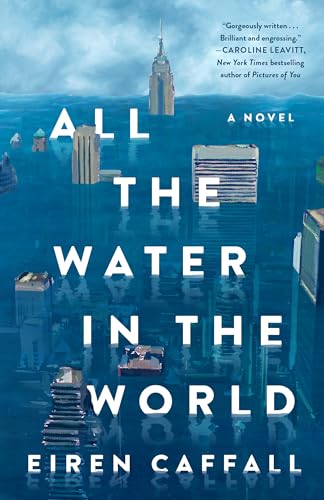
All the Water in the World continues in the tradition of Station Eleven and The Road, fostering conversations about what we cling to in the face of danger. Unspooled in lyrical, elliptical prose, All the Water in the World is narrated by Nonie, a 13-year-old girl with a special skill for feeling into water, predicting storms, and sensing their depths. It’s a useful talent: Floods and storms have inundated N.Y.C., forcing Nonie and her family to live on the roof of the American Museum of Natural History. They serve as the museum's stewards, cataloguing surviving artifacts and exhibits. But when a superstorm pounds on their doorstep, the family must evacuate to higher ground, leaving the relics behind.
Through their journey to reunite with her mother’s relatives, Nonie begins to understand life before water upended everything, while simultaneously dodging perilous illnesses, encountering the Lost, those without anywhere to live and resorting to unthinkable acts to survive, and other manmade dangers.
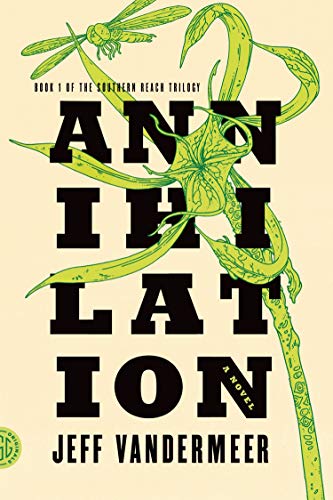
The first installment of Jeff VanderMeer’s Southern Reach trilogy, Annihilation, follows a group of female scientists visiting Area X, a cordoned-off natural sanctuary in what was formerly Florida. The research unit—a psychologist leading the mission, an anthropologist, a surveyor, and the narrator, a biologist—accounts for the 12th expedition to investigate the zone.
It’s a daunting feat: Members of past expeditions have fallen to mass suicide, cancer, and other confounding psychological effects. Tasked with learning what may have caused these responses, the 12th expedition follows its predecessors, quickly going sideways. Harboring a secret, the biologist insists on pushing the group to explore further, despite their demise. This novel drips with tension you don’t even realize you’re swimming in until you’re gasping for air.
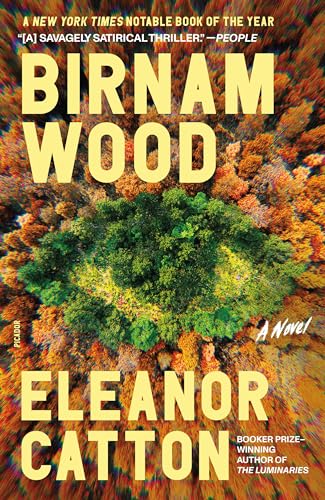
Reading like an A24 action movie melted into book form, this novel follows a group of New Zealand climate activists, known as Birnam Wood, who demonstrate their resistance through acts of rebellious gardening. Yep, you read that right.
When a main artery to the town of Thorndike becomes blocked, Birnam Wood members see an opportunity to creep onto a farm, which they believe is abandoned. But soon they realize that the farm is, in fact, very much inhabited by Robert Lemoine, a tech billionaire who’s conducting nefarious activity on the land himself. Birnam Wood’s leader, Mira, and her best friend, Shelley, attempt to negotiate with Lemoine, which may be akin to sleeping in a snake pit. Holding the other’s secrets, a tragedy brings both sides together, producing a swell of drama so large you could float a raft on it.
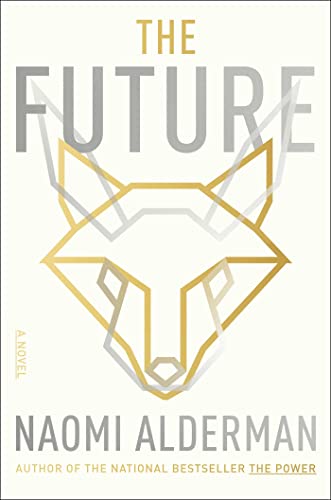
What if AI could predict the end of the world? Such is the premise for Naomi Alderman’s novel, The Future, which accordingly, presents a near future where the climate can be manipulated, and the apocalypse can be planned for. Lenk Sketlish, Zimri Nommick, and Ellen Bywater are the three most powerful billionaires in the world, running companies responsible for social media, shipping, and tech devices, respectively. Together, they’ve devised technology that can forecast the end of the world, enabling them to create secret escape plans to weather the storm, literally.
However, a counter group led by some of the billionaires’s most trusted confidantes is working to upend their greed. So, when a threat to humanity is identified, it’s unclear who will win out: the one-percenters or something, perhaps, more powerful: empathy. Told from a chorus of characters and message board posts, The Future thrums with action from the start, posing questions about the true essence of human nature.
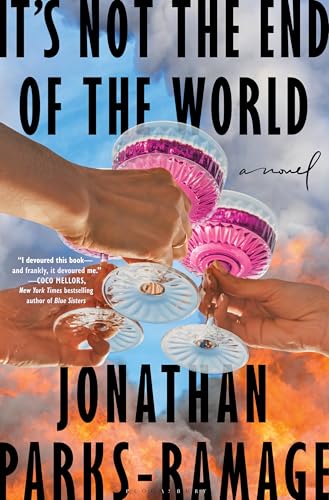
Come hell or high water, Mason will make the baby shower for his firstborn child one to remember. He’s coordinated the Weathermod for a rain shower to clear the smoke from the ongoing L.A. wildfires. He’s booked the synchronized swimmers. He’s even got a 10-piece orchestra ready. Gucci gas mask in hand, he thinks he’s considered everything. That is, until he and his baby’s surrogate encounter a new hurdle: A pink fog that, if ingested, awakens zombie-like tendencies. For many novels, this would be enough drama to last the entirety of the book. But for author Jonathan Parks-Ramage, these hilariously creepy antics transpire within the first 100 pages. The hijinks only rack up from there.
It’s Not the End of the World reads like the best yap sesh you have with your friends after splitting a pitcher of mimosas at brunch. A rollicking novel that imagines a world where biodomes can sustain a full community and robotic guard dogs helmed by extremists, It’s Not the End of the World distorts humanity just to the point of recognition, delivering a sharp-tongued satire indicting the current political landscape as well as human greed and apathy.

At the opening of C Pam Zhang’s sophomore novel, Land of Milk and Honey, industrial-agricultural experiments in the U.S. have gone awry, unfurling a great smog, which has killed off produce and decimated livestock. This is nearly a career killer for the unnamed protagonist, considering she's now a chef with no ingredients. When she's presented with an opportunity to become the cook for an elite community on a private mountaintop in the Italian Alps, she jumps at it, packing up her cat and meager belongings. But things on the mountain aren’t as clear as its fresh air might suggest: The peak houses some of the leading minds on sustainability research, and much more.
As the narrator becomes entangled with the daughter of the research center’s benefactor, she learns of the wider vision for the research and how it might impact the surrounding communities buried beneath the hazardous smog. This novel sparks a conversation around class, climate, and ethical farming, among other topics. Zhang’s spare, lyrical prose will sweep you into the book’s quiet inertia that will have you thinking about it for weeks after you’re finished.

If you watched updates on the terrible wildfires that swept L.A., you may have heard one name repeatedly come up: Octavia Butler, a sci-fi writer ahead of her time. First published in 1993, Parable of the Sower starts in 2024 L.A. The city has been ravaged by fires and social inequity, displacing thousands who, in the absence of government protection, have unraveled. Despite harrowing poverty and nonexistent resources, many are simply trying to get by, wandering the landscape for money and food. Meanwhile, others have resorted to violence, pillaging gated communities like the one where Lauren lives with her family.
Several years later, Lauren’s community is attacked, forcing her to journey north, seeking land where she and the small group that’s formed around her can begin to rebuild. Despite her conviction, she’s far from immune to the devastation around her; Lauren possesses the gift of hyper empathy, which causes her to feel the sensations of others around her, especially pain, physical or emotional. But from this pain comes a seedling of a new faith, requiring protection as much as nurturing.
The first installment of what was meant to be a trilogy, Butler reimagines the hero’s journey, setting her young heroine in a dystopian landscape that breeds hope, despite its apocalyptic surroundings.
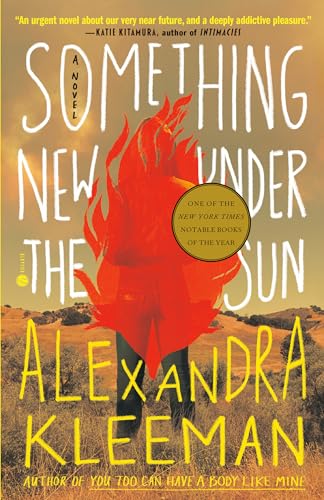
As a last-ditch effort to save his writing career, Patrick leaves New York for L.A., where he’s been enlisted to supervise a film adaptation of one of his novels, which in L.A. speak translates to working as a glorified production assistant. But the city he encounters is a far cry from La La Land: It's succumbed to drought, creating the market for WAT-R, a synthetic fluid meant to replicate the hydrating qualities of water. But WAT-R may have unexpected side effects, wiping the minds of those who consume it.
Patrick isn’t worried—he’s only in town for a short stint—and sips his WAT-R while shepherding Cassidy, the leading lady in the adaptation, across town. Cassidy, a former child star, isn't some hopeless has-been. She’s a sharp-witted actress who senses something isn’t right with WAT-R. She refuses to drink the stuff, shelling out cash for “the real thing.” But as Patrick begins to display symptoms of WAT-R exposure, he and Cassidy must attempt to untangle the mystery behind what’s causing people to fall ill after consuming the drink. Taking aim at climate change and our modern thirst to optimize everything, Something New Under the Sun proposes a future so real, you can taste it.
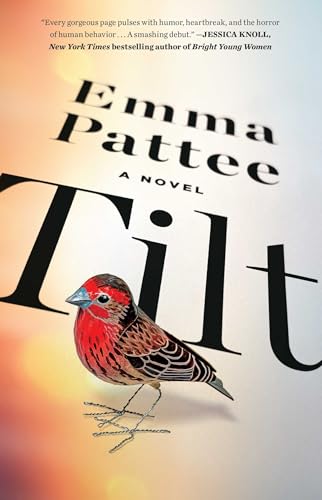
In Tilt, a long-rumored earthquake finally erupts along the Cascadia Subduction Zone fault line from California to the Pacific Northwest. It rips apart the land and leaves behind so much destruction that Annie becomes stranded in Ikea—at nine-months pregnant, no less. Without a way to get in touch with her husband, Annie attempts to find her way home across Portland, Oregon.
The walk gives her time to reflect on her life: her failed playwriting career, her marriage, her future as a mom, while keeping her baby, “Bean,” safe from unknown dangers. But this novel isn’t a heady character study in which not much happens. (Hello, it starts with an Earth-shattering natural disaster!). Rather, Tilt presents a well-rendered interrogation of compassion, generosity, and, yes, selfishness. You’ll hold your breath each time Annie encounters someone new, waiting to see what’s to come of her and Bean.
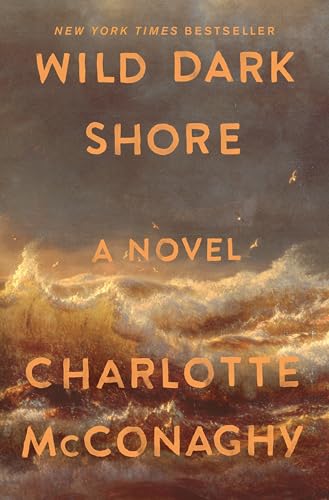
Look no further if you’re searching for a thriller that reads like top-class literary fiction. Written in sparse, haunting prose, Wild Dark Shore features characters so clearly drawn, you’ll feel as if you’re stuck on fictional Shearwater Island with them.
Shearwater once housed a bustling research facility. It's abandoned now, but Dominic Salt and his three children still look after the island, considering it harbors one of the last remaining seed banks, compiled for humans to harvest should a climate event wipe out all agriculture.
The Salt clan has their caretaking down to a science. They ration food, mind the angry and unpredictable sea, and vigorously look after the seeds. But when Rowan blows up on shore during a horrific storm, their equilibrium is immediately disturbed, further fissuring fractures within the family that existed before Rowan’s arrival. It wasn’t an accident that the mysterious woman wound up on their shores; she's swept to their coast on a current of curiosity and her need for answers. But, as she uncovers more about what brought her to the island, a storm threatens to dismantle all she’s come to care for. The only question is: What will she do to protect it?
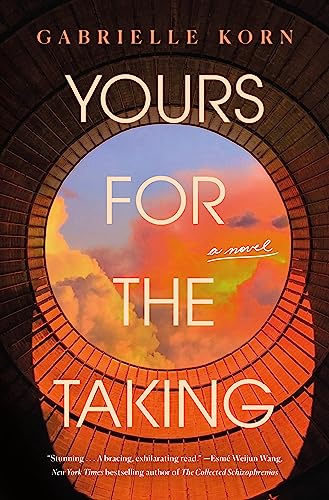
Recovering girl bosses will delight in Gabrielle Korn’s debut novel that smashes outdated ideals of corporate feminism. If you’ve ever wondered what a cocktail of capitalism, feminism, survival, and climate change tastes like, pick up this book.
Climate change is taking a toll on Ava’s relationship. It’s 2050, you would think that people would be better at navigating the sweltering temperatures and the toxic air, but that's not the case. When she scores the chance to leave her home in Brooklyn for a coveted spot within The Inside Project, the Manhattan bubble created by visionary Jacqueline Millender, Ava jumps on it, irrevocably altering her future.
She joins a league of followers, like Shelby and Olympia, who also can’t believe they get to call the glorified biodome home. But, as the initial excitement wears off, Ava and her newfound friends start to detect that not everyone is as “empowered” as Jacqueline wants her followers to believe. Soon, it becomes unclear what’s more of a threat: Jacqueline’s wrath or the climate change outside the Inside.
Get exclusive access to fashion and beauty trends, hot-off-the-press celebrity news, and more.
Liz is a freelance fashion and lifestyle journalist. With nearly 20 years of experience working in digital publishing, she applies rigorous editorial judgment to every project, without losing her sense of humor. A pop culture fanatic—and an even bigger book nerd—Liz is always on the quest to discover the next story before it breaks. She thrives at identifying cultural undercurrents and relating it to larger shifts that impact industries, shoppers, and readers.
